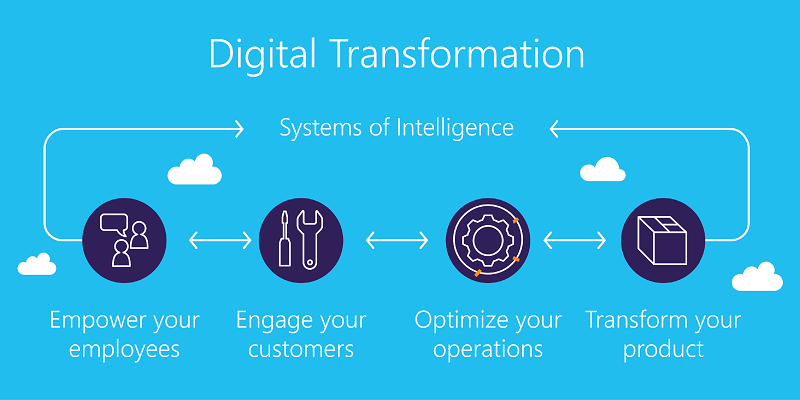There is a lot of talk about the digital transformation of companies, and they often forget a key element for their success, employees. After all, this process affects how people perform their work in a company. That is why before launching ourselves to define how our organization has to be digitized, we have to evaluate the necessary competencies in the workers to promote the digital transformation of the company.
Because one of the main factors for the success or failure of the implementation of technology in the company is the human. Resistance to change often causes well-defined and failed technological projects to fail. Or simply become an expense, not an investment that improves the competitiveness of the company.

Luddite workers, no thanks
There are workers who have a phobia of new technologies. At least those that are related to their work, because then they have not had problems moving from the phone to the smartphone. Bad start. If in our company we have many of these who do not know or change the printer’s toner, the process will be hard.
Nowadays the company needs digital professionals. It is not only that they are competent in their professional field, but that they also have a good relationship with new technologies and digital processes. Digital professionals must have a hybrid training, which adds to their technological knowledge the necessary understanding of business principles.
Are your self-employed employees to work on their own?
We often have a very efficient employee profile under supervision, when they are in a controlled office environment and preset schedule. But these workers can lose their effectiveness if they are free to perform their tasks from home, if they have to move to customer premises, etc.
A digital environment in the company facilitates mobility and being able to work from anywhere. This implies that necessarily independent employees, who can work without having the approval or constant supervision.
You may also like to read: How to stop being a boss to be a leader
Work as a team without sitting at the same table
This does not imply that they have to work in isolation, but it does change the way of working as a team. It is no longer necessary for everyone to be seated at the same table or in the same room to do so. It is necessary that they know how to adapt and have the ability to work as a team at a distance.
For this, it is fundamental to improve the capacity of digital communication, be able to show empathy, emotions and transmit a message that is easily understood. If your employees refuse to use other tools than email, it’s not a good sign.

Paper is the enemy of digitization
We also have to assess how much paper and how employees use it in the company. If we see that we still depend one way or another on paper in a large part of the departments, it will not be the best starting point for digital transformation.
The elimination of paper should give us the agility in making decisions, in improving productivity, avoid introducing the same data over and over again, etc. Print has to be a very limited resources. Handling data through the screen should be the norm, be it the computer monitor, a tablet or the smartphone itself.
Flexibility and ability to adapt to changes
Finally, for the entire process of digital transformation to succeed employees have to be flexible and have the ability to adapt to changes. If we see that in our template any small variation in how things are done is a problem, the digital change is to be found with innumerable braking.
In any case the workers will do well not to put so many obstacles. Throughout their working life they will surely have to go through several digital transformations. If they do not adapt, they will have a harder time keeping up in a changing and demanding labor market with the adoption of new technologies.
Continuous digital training
Finally, it is essential to have a continuous digital training. Implementing the changes is not enough, it is necessary for employees to be trained to take advantage of it. This is where the training capacity at our pace, through an online course has to be taken advantage of by employees.
Not everyone has the ability to concentrate, the discipline necessary to complete online training courses. And this is essential today in most companies. Continuous and digitized training is almost mandatory.
As much as the digital transformation of the company will improve competitiveness, if in the end the people who are going to use these means are not able to adapt, to take advantage of it, the result will not be the ideal one. And most likely, it ends in disaster.


